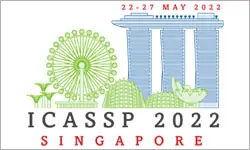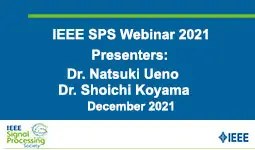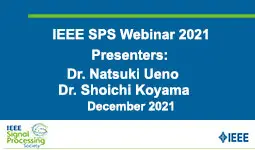-
Members: FreeSPS
IEEE Members: $11.00
Non-members: $15.00Length: 00:11:34
11 May 2022
Signal saturation or clipping is a fundamental bottleneck that limits the capability of analog-to-digital converters (ADCs). The problem arises when the input signal dynamic range is larger than ADC?s dynamic range. To overcome this issue, an alternative acquisition protocol called the Unlimited Sensing Framework (USF) was recently proposed. This non-linear sensing scheme incorporates signal folding (via modulo non-linearity) before sampling. Reconstruction then entails ?unfolding? of the high dynamic range input. Taking an end-to-end approach to the USF, a hardware validation called USADC was recently presented. US-ADC experiments show that, in some scenarios, the samples can be more accurately modelled as local averages than ideal, pointwise measurements. In particular, this happens when the input signal frequency is much larger than the operational bandwidth of the US-ADC. Pushing such hardware limits using computational approaches motivates the study of modulo sampling and reconstruction via local averages. By incorporating a modulo-hysteresis model, both in theory and in hardware, we present a guaranteed recovery algorithm for input reconstruction. We also explore a practical method suited for low sampling rates. Our approach is validated via simulations and experiments on hardware, thus enabling a step closer to practice.



